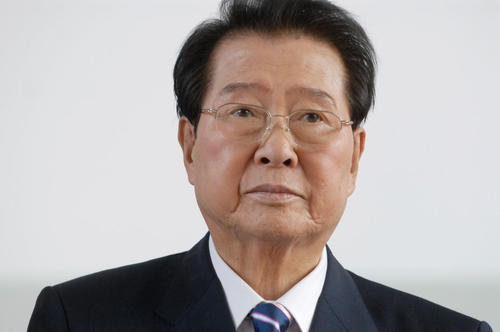Dr. Kim Dae-jung
Kim Dae-jung, a former South Korean President, was known for his opposition to authoritarian rule and for his Sunshine Policy toward North Korea.
Apr 25, 2007
Dr. Kim Dae-jung was the eighth President of the Republic of Korea from 1998 to 2003.
Image Credit: David Ausserhofer
For his lifetime achievements and his commitment to the freedom of Korea, Kim Dae-Jung was awarded the first international Freedom Award of Freie Universität Berlin on May 16, 2007.
His entire life long, Kim Dae-Jung campaigned for democracy, human rights, and a peaceful rapprochement between North and South Korea. For many decades he was exposed to massive threats. During the military dictatorship of General Park Chung-hee and his successor, Chun Doo-hwan, Kim Dae-jung was abducted, held under house arrest, sentenced to death, and eventually forced to go into exile. From abroad, until his return to Korea in 1985, Kim, as the most prominent dissident of South Korea organized the freedom movement. With the end of the dictatorship in 1987, he received his political rights again. The same year he founded the Party for Peace and Democracy, which later merged with the Democratic Party, also founded by Kim Dae-jung.
Kim Dae-jung was elected President of the Republic of Korea in 1997 and from 1998 to 2003 he served as the President of the Republic of Korea. For his tireless service to his country, Kim Dae-Jung was awarded the Philadelphia Liberty Medal in 1999. In March 2000 he was the recipient of the Honorary Medal in Gold of Freie Universität Berlin. In December 2000 Kim Dae-jung was awarded the Nobel Peace Prize in recognition of his diplomatic approach to North Korea, which became known as the Sunshine Policy.

